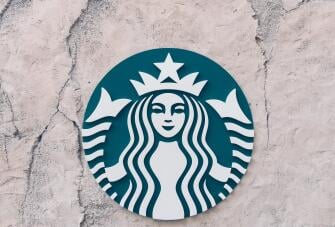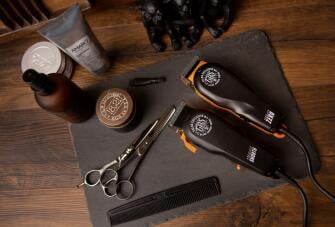How Much Does a Liquor License Cost in Florida?
If you’ve wanted to open a restaurant, bar, or nightclub in the state of Florida, serving alcohol is probably a given. But you’ll need to get a liquor license in order to do that.
Even if you only plan on storing alcohol, you may need a permit! We tell you how much a liquor license costs in Florida, and what you need to do to obtain one.
How Much a Liquor License Costs in Florida
Annual license fees range from $14 - $1,828, depending on the location of the business and license type. Interestingly, the cost of these Florida liquor licenses is based on the county population for the county in which the business is located.
In addition, there are other licenses related to alcohol that your business may be required to have, and these cost between $25 and $4,000.
For county-based license fees, business owners can purchase a 6-month or 12-month license.
Keep in mind that the ranges listed above are only for one type of license. You may be required to have two or more licenses depending on your business type, which will increase your license fees.
Before you can pay for a license, though, you’ll need to register for one, or several, depending on the type of business you plan to open.
Registering for a Liquor License
You’ll need to register for a liquor license with the Florida Division of Alcoholic Beverages and Tobacco, which is part of the Department of Business & Professional Regulation.
You’ll also need an Employer Identification Number (EIN), which means your business must be registered with the federal government and the state of Florida before you apply for a liquor license.
While it may be tempting to go ahead and start serving, selling, transporting, or storing alcohol without all the proper licenses/permits, doing so could cost you your business.
It’s illegal to operate a business that handles alcohol in any form without a license in Florida—so be patient, and follow through with your regulatory requirements.
Once you’ve registered your business, you’re ready to figure out which type of liquor license(s) you need to apply for.
Types of Florida Liquor Licenses
Shockingly, there are 41 different types of liquor licenses that may be required in Florida depending on your business. In addition, you may need to get more than one type of liquor license.
For example, your business may need one liquor license to serve alcoholic beverages and a separate liquor license to transport alcohol to the premises.
A few common licenses include:
- Manufacturer/Distributor
- Common Carrier (transporting alcohol)
- Retail Beverage
- Salesperson of Wine & Spirits
- Bottle Club (no sale of alcoholic beverages, but they may be brought in by patrons)
- Off-Premises Storage Permit
- State Bonded Warehouse Permit
- Quota license
Because a quota liquor license is slightly different than all of the other license types, we take a more detailed look. This type of license allows a business owner to sell beer, wine, and liquor, and may or may not be required in addition to other licenses listed above.
Quota licenses are unique in that they’re somewhat hard to come by. Counties may only issue one quota license for every 7,500 people residing in that county. In a county with a population of 21,000 residents, only two quota licenses could be issued.
Business owners must either enter a license “lottery” to win the right to apply for a quota license, or they can buy a quota license from someone who already has one. There may be additional fees associated with a quota license, as well.
Failure to apply for all necessary licenses could delay or prevent your ability to sell, transport, manufacture, or store alcohol. It’s crucial that you understand how many specialized licenses your business will need before you open your doors to customers.
You also need to be aware of the fact that not all counties in Florida even allow for the sale of alcohol, and you’ll want to avoid those locations if you plan to sell alcohol.
Florida’s Dry Counties
Florida is one of the few states that still has counties that prohibit the sale of alcohol—in restaurants, bars, convenience stores, liquor stores, etc. So no matter which type of business you plan to open, if it involves the sale of alcohol, you won’t be able to operate in the following counties:
- Lafayette
- Liberty
- Washington
This includes every municipality located within these three counties, as well. So even if you wanted to open a restaurant and sell alcoholic beverages for your diners to drink at their tables, you wouldn’t be able to in those three counties.
Even in counties that do allow you to sell beer or wine, or to sell liquor, regulations on when, where, and how you can sell vary by county, and you may need to contact a business attorney to help you sort it all out.
Now that you know which type of license(s) you need, and where you won’t be opening your business, all that’s left is to fill out the application for the liquor license.
Completing the License Application
In order to obtain a liquor license from the state of Florida, you’ll need to complete the correct application packet.
The application form typically includes the following information:
- Citizenship status
- Whether a prior liquor license was revoked within the past 15 years
- Any felony convictions or convictions related to alcohol within the past 5 years
- Names and contact information of all owners/parties involved in the business
- Description of the premises
The liquor license application form covers a lot more ground than we can include here, but it’s easier to understand than some state applications.
Most businesses that sell, serve, store, or transport liquor will also need to provide the following when applying for a liquor license:
- Fingerprints of all parties involved in the business
- Arrest records (if applicable)
- A sketch of the premises
- Certificate of Status from the Florida Secretary of State
- Proof of moral character (if required)
Once your application has been received, the state will conduct a physical inspection of the business location and premises, and if the location passes inspection and the application is approved, you’ll receive your liquor license.
Now that you’ve finally gotten your long-awaited liquor license, you’re ready to think about customers. One of the keys to retaining customers and bringing new business in the door is providing them with a top-notch point of sale experience.
Get a Versatile POS System
Any retailer in the alcohol industry (including restaurants, hotels, spas, nightclubs, bars, and liquor stores, among many others) needs to provide their customers with a secure and reliable point of sale system.
Epos Now offers several great solutions, including mobile retail point-of-sale options for both Android and Apple phones and tablets. Of course, you also have the option of accepting major credit cards, including Visa, Mastercard, and American Express. Not only that, but Epos Now is equipped for Apple Pay and Google Pay, as well.
Whether you have the hardware in place already and only need POS software, or you need an entire system bar point of sale system, Epos now can do it all, and has been independently rated by US News and World Report as one of the best POS providers in the country.
Now that you’ve got a trusted point of sale system in place, and you’ve gotten all the required licenses and permits, you’re finally ready to open your doors and sell to customers—which is why you got started in this industry in the first place!



